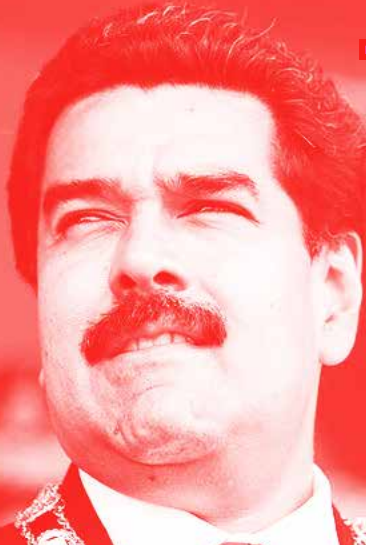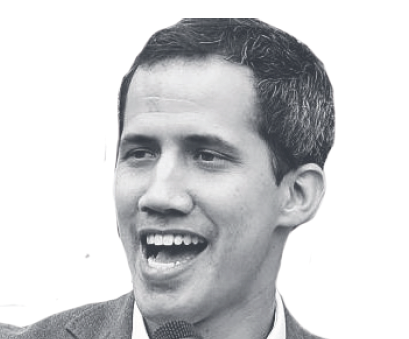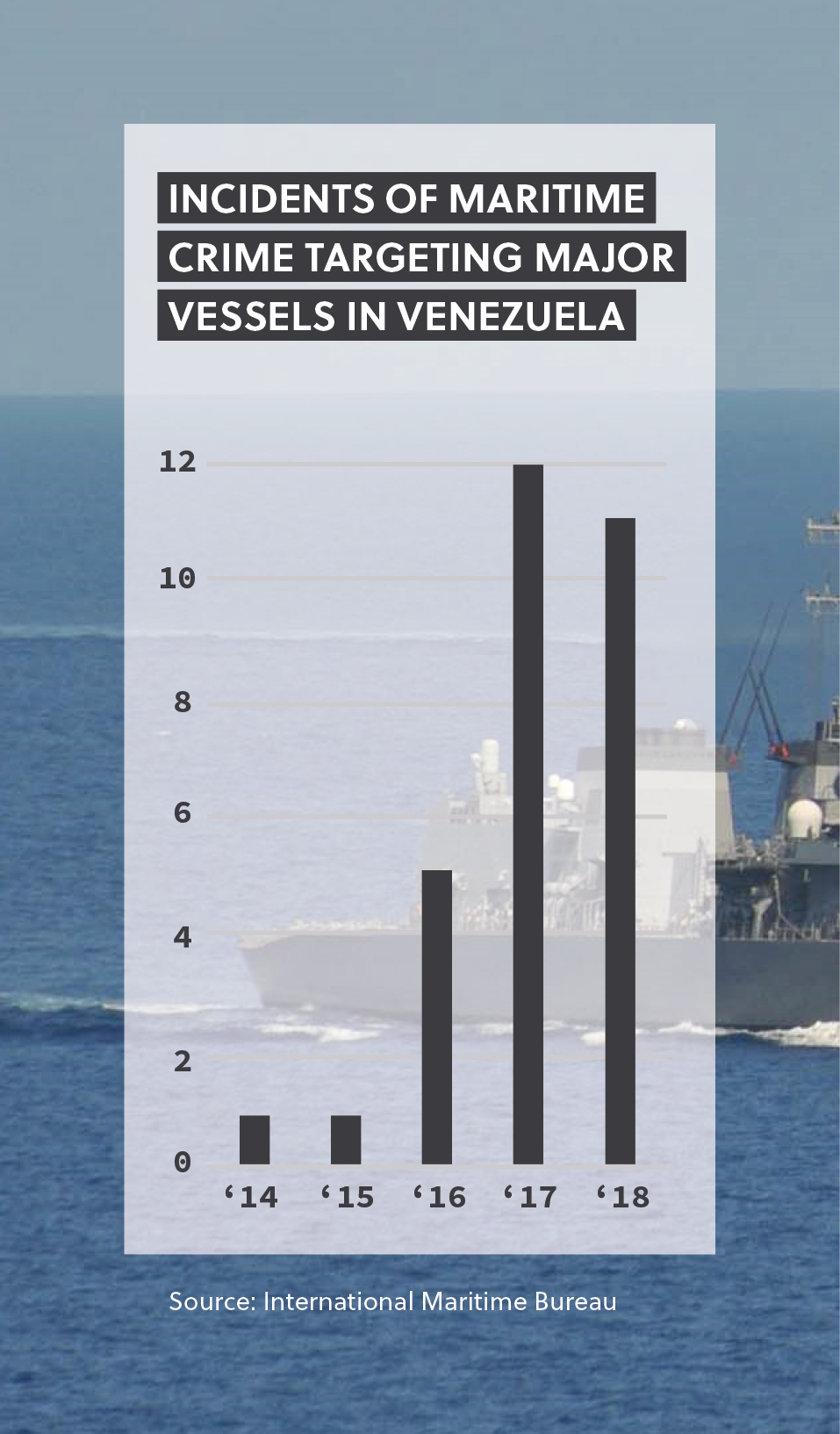Of Protests and Pirates: Emerging Security Threats in Venezuela

The Security Environment
The Venezuelan crisis entails both an economic crisis, which stems from economic mismanagement under the socialist government of Hugo Chavez, and a series of political crises during Nicolás Maduro’s rule. From the early 2000s, Maduro's predecessor, Hugo Chavez, implemented a variety of controversial economic policies as part of the Bolivarian Revolution. These socialist policies doubled public spending, increased Venezuela’s debt burden and scared off foreign capital after the expropriation of private company property, including the assets of major foreign companies.
By the time Chavez died in 2013, his successor Maduro inherited an economy saddled with high levels of inflation and an over-reliance on oil. In mid-2014, global oil prices tumbled, and Venezuela’s economy went into free fall. Maduro attempted to counter this decline in revenue by printing money, sending the currency and the country into a spiral of inflation. The International Monetary Fund forecasts Venezuela’s inflation will reach 10 million percent by the end of 2019.
As unrest brewed, Maduro consolidated power through political repression, censorship and electoral manipulation. In 2017, the government issued an indefinite ban on all protests, imprisoned political adversaries and dissolved the National Assembly. In May 2018, Maduro secured reelection in a presidential race that the US and others condemned as unfair and undemocratic.

This unfortunate cocktail of destructive economic policies, corrupt governance in the public sector and resultant hyperinflation has caused high levels of unemployment, widespread emigration and critical shortages of food and medical supplies. In 2019, the opposition-majority National Assembly declared the 2018 presidential election invalid and nominated the President of the National Assembly, Juan Guaidó, as the interim president of the country. Since this declaration on 10 January, Maduro, who still retains the support of the military, has refused to resign, dimming the prospects of a peaceful resolution to the crisis. The following case studies demonstrate two very different ways in which the deterioration of the security environment has manifested.
Case Study 1: Political Evacuation
On 12 March, the US announced the withdrawal of all diplomatic staff and their families from the US Embassy in Caracas. While many other countries, including Russia and China, have so far resisted evacuation, several foreign companies have pulled all personnel from the country.
While anti-government supporters have intermittently protested against the government since 2010, the opposition-led protest movement has renewed its efforts, vowing to remove Maduro in 2019. Protests characterised by violence between protesters and Venezuelan security forces have occurred almost daily since 11 January, particularly in Caracas, with at least 107 people killed and 956 arrested in 2019.
Unofficial militias known as colectivos, who buttress Venezuela’s security forces, increase the threat that anti-government protests will devolve into broader political violence. In 2006, Chavez — fearing a US invasion — armed the colectivos with assault rifles, which in effect would enable these armed militias to regularly help Venezuela’s security forces to repress opposition protests. The presence of colectivos, along with the ongoing standoff between pro- and anti-government supporters, deepens the prospects of continued political violence in the country.
Adding to the uncertainty, there are signs of fractures within the military, a bastion of support for the regime. On 21 January, several dozen soldiers from Venezuela’s National Guard attempted to stage a mutiny in Caracas. The soldiers overpowered their superior officer, stole firearms and two military vehicles and kidnapped four other soldiers. The attempted mutiny highlights the level of anti-government sentiment felt by many soldiers in national service and increases the that likelihood violence will force foreign nationals to evacuate from the country in the coming months.

Case Study 2: Piracy
The economic crisis that started under Chavez has also contributed to an increase in the threat of piracy in the region. In an illustrative incident on 27 January 2019, Venezuelan pirates kidnapped six Trinbagonian fishermen after they left Morne Diablo and demanded a USD 200,000 ransom for their release. One fisherman was released on 29 January after the payment of USD 30,000 and the rest were released on 7 February after the payment of USD 60,000, several boat engines and an unspecified amount of gold.
In ports such as Güiria, Sucre State, and Puerto La Cruz, Anzoátegui State, pirates predominantly target smaller vessels and hold the crew to ransom. The pirates are also linked to the smuggling operations run by colectivos and other armed groups in the country, such as the government-linked Cartel de los Soles (Cartel of the Suns). The pirates smuggle cocaine and weapons out of Venezuela in exchange for ordinary provisions such as rice and cooking oil.
Venezuelan pirates have also recently targeted commercial vessels. For example, on 3 January 2019, crew on a tanker anchored in Puerto La Cruz’s official anchorage zone discovered armed assailants attempting to board the tanker using a grappling hook. The pirates aborted the attempt after the duty crew sounded the ship’s horn and alerted the authorities. Two weeks later, assailants stole supplies and equipment from the deck of a tanker, also anchored in Puerto La Cruz.
The pirates in Venezuela are largely former fishermen who turned to piracy after Chavez’s nationalisation programme caused the country’s domestic fishing industry to collapse in 2015. Thousands of fishermen lost their jobs and the amount of fish caught in Venezuela plummeted by 60 percent within several months.
While Venezuelan pirates have thus far avoided hijacking large commercial vessels, the threat of piracy has increased in the region. Due to limited police capabilities and ease of access to firearms, these pirates are both highly capable and under significant pressure to provide for their families, posing a threat to both local and foreign vessels in the region.
